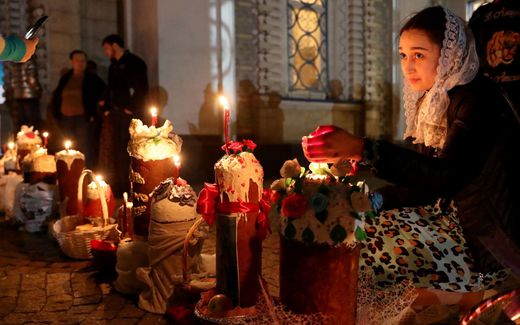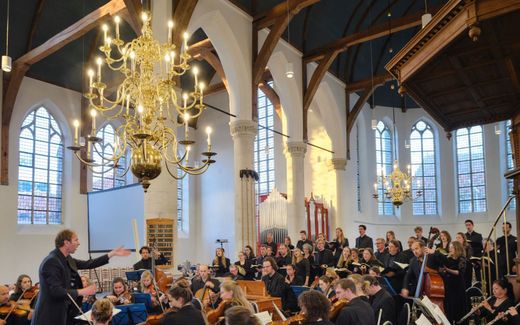Column from Moscow: Going through the Easter customs
28-04-2023
Eastern Europe
Nina Koryakina, CNE.news

A Russian child is painting an Easter egg. Photo AFP, Alexander Nemenov
Eastern Europe
When I was growing up in the Soviet Union, we celebrated Easter every year. Millions of atheists coloured eggs, baked the traditional Easter cake (kulich) or made the traditional Easter dessert (paskha, somewhat similar to cheesecake), and greeted each other with the traditional “Christ is risen!” to which the response was, “He is risen indeed!”
Not to mention that the date of Easter is different every year. One may only find it in a church calendar, and hardly anyone I knew ever went to church. And yet everyone knew the date somehow. And never failed to celebrate it.
In a society completely stripped of religious customs and shaped by atheist propaganda, this should have felt bizarre, to say the least. And it didn’t. Easter was celebrated so naturally that, as a child, I never perceived any contradiction or oddity in this.
Most of the customs were passed on from the older generation of babushkas, or grandmas, naturally. Raised with these practices, they preserved the traditions without mentioning their religious meaning or value. A wonderful Orthodox priest, Fr. Georgy Chistyakov, had an Easter message on how it was the faith of babushkas that pretty much saved the Orthodox faith in Russia during the decades of persecution.
Growing up, I did not quite grasp the value of these little customs, of not questioning whether you celebrate Easter or not – you celebrate it because the day has come, you celebrate it as something that is never questioned or doubted, you celebrate it because Christ is risen indeed, even if you personally don’t believe it.

It hit me the first time I had to celebrate Easter away from home, in the United States. We lived in a wonderful Christian community and attended a lovely Evangelical Church with many traditions for Lent and the Holy Week. Actually, some of these traditions, like the Ash Wednesday service or other Holy Week services, were new to me and made quite an impression. However, when we came to the Easter Sunday service, it was a usual Sunday service, just with Easter hymns. It felt like a bit of disappointment.
But – the hardest blow was yet to come.
The pastor –God bless his heart– decided to do something new that Easter. He stood before the congregation and announced, “Christ is risen!” It felt like home. For about 3 seconds. Because the greeting was met with an awkward silence. Nobody said: “He is risen indeed.”
You see, these guys had not been raised in the Soviet Union. They did not know how to respond to the Easter greeting.
This is when I realised, ‘Toto, we are not in Kansas anymore.’ Well, metaphorically speaking.
All of a sudden, I was as far from home as I could be. And all of a sudden, home was right there, in my heart, in the warm memories of days on end when you eat nothing but Easter cakes and eggs, or so it seems, of the “Christ is risen! He is risen indeed!” at the start of every conversation.
This year, I witnessed lines of dozens of people coming to their local parishes on Saturday before Easter to bless the Easter cakes and eggs so they could properly celebrate on Sunday. Even the priests admit that quite a few of these people only come to church once a year, for Easter, to observe the custom rather than ponder on the meaning of the Resurrection.

However, be it the faith of your babushka, her treasured recipe of Easter cake, or the fun of colouring eggs with your kids – whatever brings you to church may lead you to faith.
The funny little things we call customs may have in them that mustard grain of truth that, “when planted, it grows and becomes” something much, much bigger.
Related Articles








